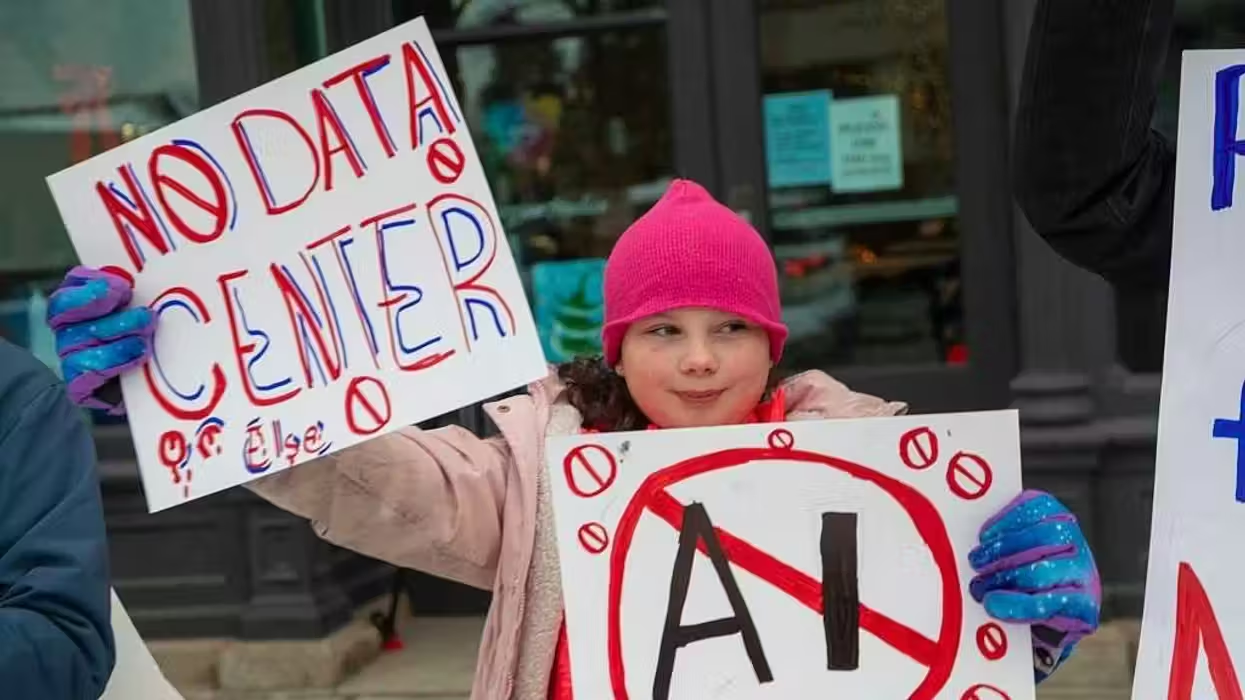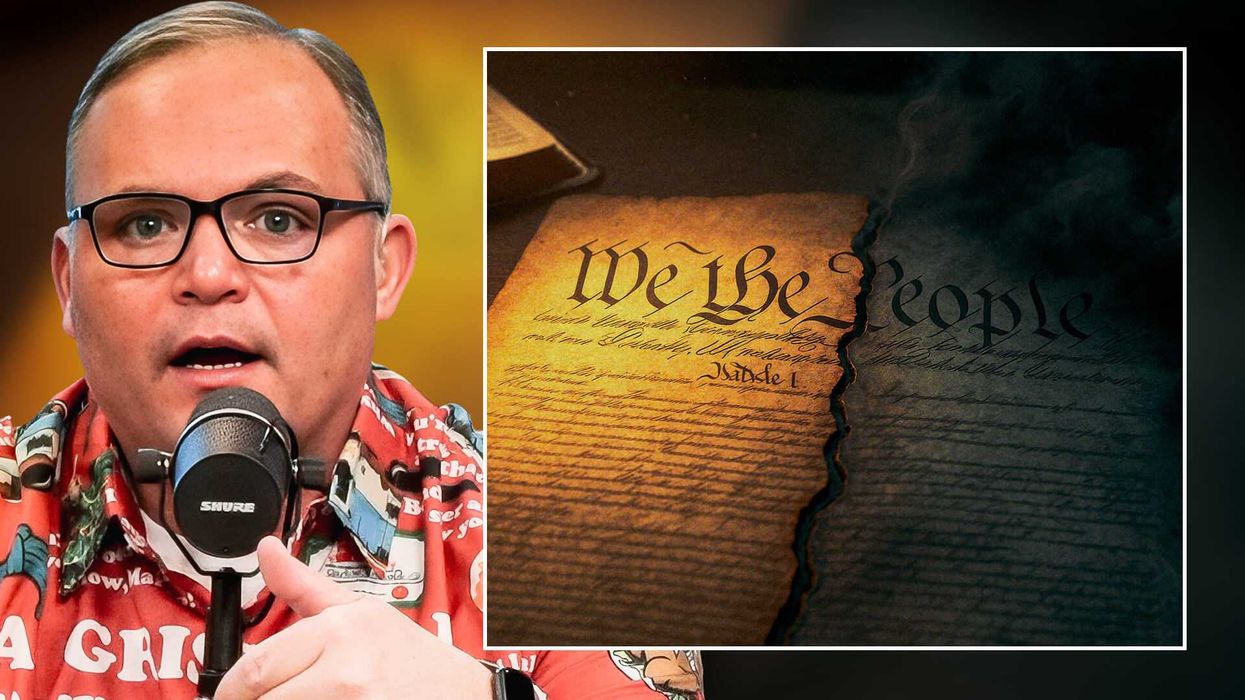
© 2025 Blaze Media LLC. All rights reserved.
Was Rick Santorum Really Wrong to Claim That College Makes Young People Less Religious?
February 27, 2012
"62 percent of kids who enter college with some sort of faith commitment leave without it."

Republican presidential contender Rick Santorum found himself in the headlines numerous times over the weekend. On Saturday, he called President Barack Obama a snob for wanting every American to go to college. Then, on Sunday, he inspired debate about faith and religion in America when he said that the separation of church and state shouldn't be "absolute" and that higher education leads individuals to become less religious.
(Related: Santorum: Separation of Church and State Not ‘Absolute’)
"President Obama said he wants everybody in America to go to college. What a snob!" Santorum said during a campaign stop in Michigan. "There are good, decent men and women who go out and work hard every day and put their skills to the test that aren’t taught by some liberal college professor trying to indoctrinate them."

While these comments were questioned by individuals who saw the candidate's words as an attempt to devalue education, Santorum wasn't done sharing his opinions about higher education. On ABC's "This Week," on Sunday, he commented about college and its negative impact on young people who count themselves among the religious.
Santorum told ABC's George Stephanopoulos, "62 percent of kids who enter college with some sort of faith commitment leave without it." Here's the full dialogue, for context:
STEPHANOPOULOS: All [Obama] said was he wants, quote, "every American to commit to at least one year or more of higher education or career training." In your interview with Glenn Beck this week, you seemed to go further. You said I understand why Barack Obama wants to send every kid to college, because they are indoctrination mills. What did that mean?SANTORUM: Well, of course. I mean, you look at the colleges and universities, George. This is not – this is not something that’s new for most Americans, is how liberal our colleges and universities are and how many children in fact are – look, I’ve gone through it. I went through it at Penn State. You talk to most kids who go to college who are conservatives, and you are singled out, you are ridiculed, you are – I can tell you personally, I know that, you know, we – I went through a process where I was docked for my conservative views. This is sort of a regular routine (ph). You know the statistic that at least I was familiar with from a few years ago -- I don’t know if it still holds true but I suspect it may even be worse – that 62 percent of kids who enter college with some sort of faith commitment leave without it.
Watch the exchange (occurs around 11:30):
![]()
While Santorum did say he's not sure if his statistic about 62 percent of young people attending college still holds true, TPM notes that studies have consistently found his assertion to be incorrect:
A study published 2007 in the journal Social Forces — which PBS reports that Santorum’s claim is based on, although his spokesman didn’t respond to TPM’s request for confirmation — finds that Americans who don’t go to college experience a steeper decline in their religiosity than those who do.“Contrary to our own and others’ expectations, however, young adults who never enrolled in college are presently the least religious young Americans,” the journal concluded, noting that “64 percent of those currently enrolled in a traditional four-year institution have curbed their attendance habits. Yet, 76 percent of those who never enrolled in college report a decline in religious service attendance.”
Another study, as TPM notes, published in The Review of Religious Research (RRR) in 2011, found that, though the results can be complicated, "Analysis results suggest that increases in education lead Americans to take advantage of the voluntary nature of American religion."

But, again, the results are complex and multi-layered. And after examining them, Santorum's fears about liberalization may not be unfounded. The Blaze covered this RRR study when it emerged. As we reported, the examination also found that more educated you are, the more liberal you‘re going to be when it comes to thoughts about who’s going to heaven (and who’s not). Here's more:
Rather than simply not having any religious views as a result of increased education, USA Today’s Cathy Lynn Grossman writes that Schwadel has found that, “Each year of education ups the odds by 15% that people will say there‘s ’truth in more than one religion.’” What does this mean, you ask?It seems that as people become more educated, their views on religion — at least some aspects of it — liberalize. In addressing these important issues, Schwadel looked at 1,800 American adults’ religious beliefs and education. The results are intriguing.
At the time we published the last story about this issue, we shared some statistics that Grossman penned on the matter. For each year of education above and beyond the seventh grade, Americans are:
•15% more likely to have attended religious services in the past week.•14% more likely to say they believe in a “higher power” than in a personal God.
•13% more likely to switch to a mainline Protestant denomination that is “less strict, less likely to impose rules of behavior on your daily life” than their childhood religion.
•13% less likely to say the Bible is the “actual word of God.” The educated, like most folks in general, tend to say the Bible is the “inspired word” of God, Schwadel says.
So, clearly this is a mixed bag. While peoples' views do liberalize on some issues, there is also increased religious attendance -- but can we be sure that increased church attendance is equitable to increased religiosity? Not entirely, of course, as this is subjective and depends on varied definitions of the latter.
Other studies and polls do cause additional questions to arise. In June 2011, Gallup found that 92 percent of Americans still believe in God -- a proportion that hasn't changed radically since the 1940s. However, among youths, liberals, those living in the nation's eastern region and those with a postgraduate education, the proportion drops below 90 percent.
In the end, further exploration is needed to extrapolate the political and religious elements at hand. While Santorum may have left out some context surrounding the statistic, it is a slippery slope to assume that church attendance is the sole indicator through which increases and decreases in the fervency of faith should be measured. But it's also dangerous to assume that college automatically leads individuals to lose their faith.
Want to leave a tip?
We answer to you. Help keep our content free of advertisers and big tech censorship by leaving a tip today.
Want to join the conversation?
Already a subscriber?
Billy Hallowell is a digital TV host and interviewer for Faithwire and CBN News and the co-host of CBN’s "Quick Start Podcast."
Billy Hallowell
Billy Hallowell is a digital TV host and interviewer for Faithwire and CBN News and the co-host of CBN’s "Quick Start Podcast."
more stories
Sign up for the Blaze newsletter
By signing up, you agree to our Privacy Policy and Terms of Use, and agree to receive content that may sometimes include advertisements. You may opt out at any time.
Related Content
© 2025 Blaze Media LLC. All rights reserved.
Get the stories that matter most delivered directly to your inbox.
By signing up, you agree to our Privacy Policy and Terms of Use, and agree to receive content that may sometimes include advertisements. You may opt out at any time.






